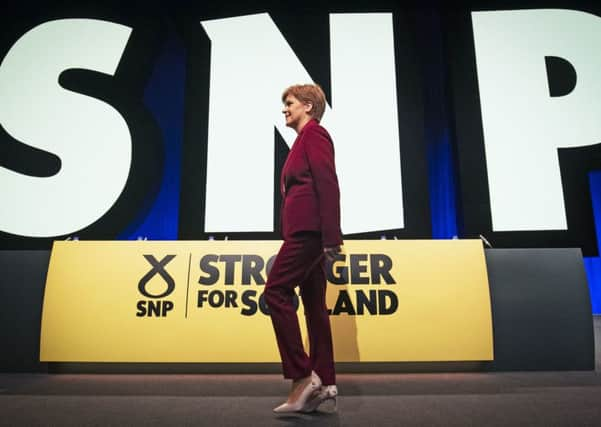Leader comment: Any future indyref must be legal and fair


With a membership in six figures and poll-ratings that opponents can only dream of, the nationalists remain the pre-eminent force in contemporary Scottish politics.
But while the SNP is expected to win a fourth Scottish parliamentary election in 2021 and to boost its numbers at Westminster whenever that vote takes place, all is not now rosy in the nationalist garden.
Advertisement
Hide AdAdvertisement
Hide AdThe source of growing tension within the party is the strategy for calling a second referendum on independence. Ms Sturgeon has made clear to colleagues that she believes the route towards the break up of the UK must begin with the establishment of a legally constituted referendum, recognised as valid both at home and abroad. Some of her colleagues see things differently.
Suggestions from a number of SNP politicians include declaring victory in a future election as the basis for independence negotiations to begin and the preparation of a referendum even if the UK Government does not grant the Section 30 order which would empower ministers at Holyrood to call a vote.
Clearly there is growing impatience among sections of the SNP membership for another referendum but The Scotsman agrees with the First Minister that, if the constitutional question is to be put to the people again, it must be done in a way that is beyond challenge.
We have seen all to clearly the chaos caused by the Brexit result. How much greater would the upset be if Scotland broke away from the UK through a process that many voters did not recognise as legal or fair?
The First Minister has said she will soon request a Section 30 order from the UK Government. She must know that the chances of this being granted are vanishingly slender but, for the time being, such a move may satisfy some of her more excitable members. Pro-independence campaigners can hardly be blamed for feeling the First Minister is dragging her heels on the matter of a second referendum. She has, after all, spent much of the last five years encouraging supporters to believe that their dream of an independent Scotland is within touching distance.
But neither nationalists nor unionists would be served by a process that did not meet the standards required by law.